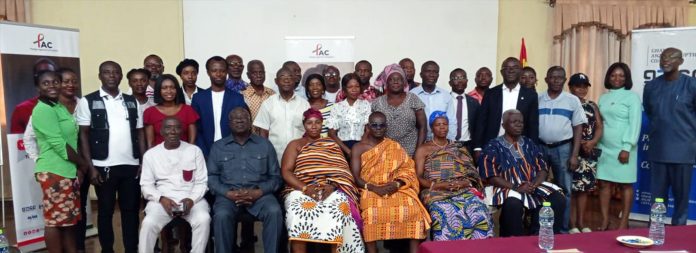Transparency International Ghana, in collaboration with African Centre for Energy Policy (ACEP) and Ghana Anti-Corruption Coalition (GACC), has tutored civil society organisations (CSO), trade unions and pressure groups to support anti-corruption actions at a multi-stakeholder workshop supported by the Foreign, Commonwealth and Development Office (FCDO) and held in Kumasi on the need to hold government accountable for its anti-corruption promises.
The workshop under the theme: “Towards a strong coalition of CSOs, trade unions, and pressure groups committed to holding the government accountable for its social policies with the people”, dialogued on strategies and interventions to hold the current government and its appointees accountable to ensure corruption is reduced in their respective institutions.
The workshop, which also sought clarification relative to specific anti-corruption proposals, drew its participants from CSOs active in governance and anti-corruption advocacy, unions at the tertiary level, political parties among others.
Ms. Betty Dufie, Representative, ACEP, disclosed that the workshop was part of a broader project on Anti-Corruption, stressing that the workshop was very essential because the Global government performance indicators, such as Corruption Perception Index published by Transparency International, shows a “stagnation” in score (43 percent) since 2022, but dropped to 42 percent 2024.
The score, Ms. Dufie explained, indicated that the country was not making progress in its fight against corruption, adding that the International Monetary Fund (IMF), last report revealed that whiles governance indicators where “relatively strong” compared to Ghana’s peers, “government effectiveness, regulation quality, and control of corruption” had deteriorated over the years.
Further compounding these challenges, the ACEF Representative disclosed that the report also revealed Ghana’s “weak public accountability” of projects and resources, which constitutes the “corruption menace” in the country.
Ms. Dufie also indicated “engagement policy coordination”, especially in budget planning and its implementation among the challenges, as evident in the 2023 open budget survey, for which Ghana scored 17 percent in public participation in budgeting.
Ms. Betty Dufie emphasised the need to face aforementioned challenges head-on, noting that the workshop was part of a “bigger picture” and urged participants to take on the advocacy of anti-corruption because the consortium, comprising Transparency International Ghana, ACEP and GACC, cannot do it alone.
From Oswald Pius Freiku, Kumasi









